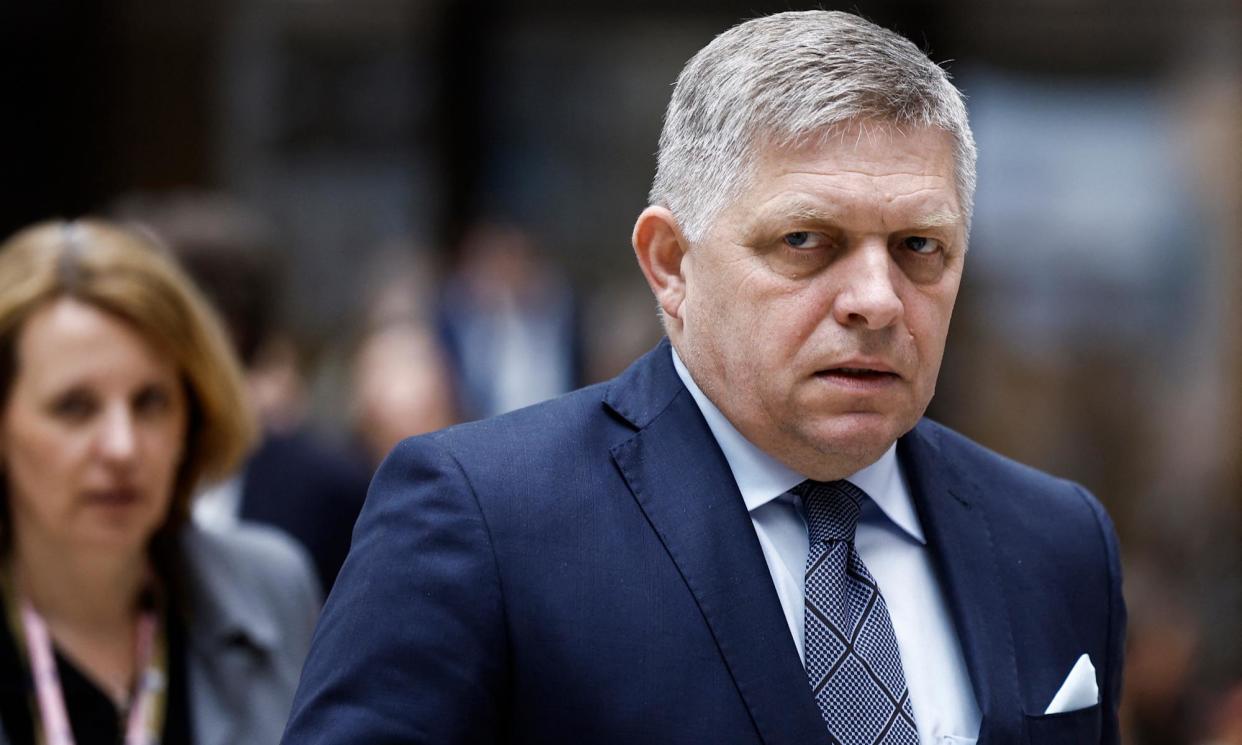Slovakian journalists wear black to protest media overhaul

Journalists in Slovakia are protesting against a government move to overhaul the country’s public broadcaster, warning that the populist prime minister, Robert Fico, and his allies are undermining media freedom.
On Thursday, many journalists wore black, a day after Slovakia’s government approved a controversial draft law that would replace the public broadcaster RTVS, remove its director general and allow a council partly selected by a ministry to appoint a new chief.
Fico, who has faced criticism at home and abroad for targeting independent media, has repeatedly portrayed RTVS as biased. But RTVS staff and watchdog groups say the legal changes, which are expected to be approved by Slovakia’s parliament in the coming weeks, are part of an effort to undermine independent journalism.
The government’s plan was an “unjustified change that is contradictory to legislative standards,” said Ľuboš Machaj, the director general of RTVS.
Responding to questions from the Guardian, Machaj said in an emailed statement that he was “especially concerned about the enormous pressure and interventions that might affect all fields of the public service radio and television”. He also raised concerns that a new ethical commission would “gain competences beyond its authority” and that “the internal freedom of RTVS editors will be jeopardised”.
“RTVS is not going to be a state media institution; however, it shall get under direct political influence,” he said.
In a video shared with the public, RTVS staff highlighted their contribution to Slovak society and said the law “could become a tool of political control over RTVS for any government”.
“Free and independent media should serve all citizens of the Slovak Republic, and not only the ambition for power of any political party,” they said, stressing: “We want to continue to work freely.”
More than 80,000 people have signed an open letter to the European Commission and European parliament in support of an independent RTVS.
There are growing worries about freedom of the press in the country.
A poll by the Committee for Editorial Independence, published on Thursday, found that 65% of Slovak respondents said they were concerned about media freedom – up from 49% two years ago.
Young people have the most qualms. The poll found that 74% of respondents between the ages of 18 and 24 were concerned about media freedom.
Pavol Szalai, head of the EU desk at Reporters Without Borders, said: “Fico has decided to declare a war on independent media. Like his Hungarian role model Viktor Orbán, Robert Fico portrays the critical private media as hostile, so that he has an extra pretext for a political takeover of the public media.”
A survey last year by the Reuters Institute for the Study of Journalism found that 54% of Slovaks said they trusted the RTVS brand, while 25% said they did not trust it.
Slovakia’s culture ministry, which proposed the legal changes to the public broadcaster and argued that RTVS was not properly fulfilling its role, did not respond to a request for comment.
Szalai said that the Fico government’s plans violated European law. “I call on the government to act in line with its promises and propose only such legislation that is in line with EU rules,” he said. “The verbal attacks against private media and the attempt to designate them as foreign agents have to stop, too.”

 Yahoo News
Yahoo News 
